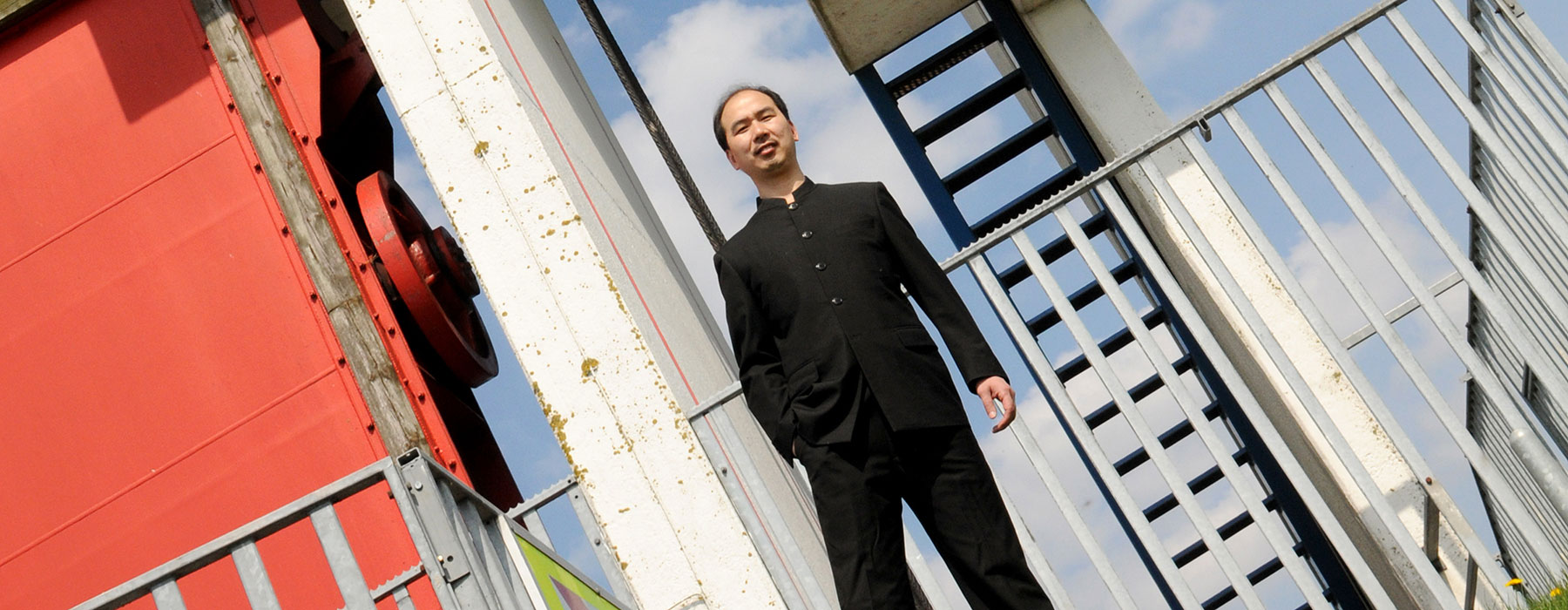NAME: WAN TUNG
COMPANY: ASIAN PARADISE
IN THE NETHERLANDS SINCE: 1982
Like so many of his compatriots, the Chinese Wan Tung grew up in a family of entrepreneurs. Enterprise and hospitality are, as it were, in his genes. At the age of 19 he had already opened his first restaurant in Utrecht, together with his sister. Both have since gone their separate ways, but he never left Flevoland because he felt at home there from the start. The pioneer mentality of the occupants of this ‘new land’ stimulates him enormously. The purchase of his first restaurant in Zeewolde was decided within half an hour. In 2006, responding to the changing tastes and needs of his customers, he also started a wok restaurant. Wan has a good relationship with his fellow entrepreneurs and has become a household name in the town and far beyond.
1. How long have you been in The Netherlands?
My father came to The Netherlands as a tourist in 1979. He then brought his wife and four children over in 1982, as soon as he had a residence permit. I was then eleven years old.
2. How did you become an entrepreneur and why?
My father worked in his brother’s takeaway in Delft and later took it over. The whole family worked in the business. As soon as I got out of school, I had to help too. At the age of 19 I opened my first restaurant, together with my sister. It was a combination between a Dutch snack bar and a Chinese restaurant. After two years we sold the business and my sister and brother-in-law started an upmarket snack bar in Almere. Flevoland appealed to me and when I read in 1996 that a restaurant in Zeewolde was for sale I immediately went to look at it. I liked the location: beach, harbour, central location and residential areas close by. Within half an hour I had decided. After two years my restaurant ‘Ocean Paradise’ was too small and I wanted to expand. From the start I felt at home in Zeewolde and was eager to remain there. In 2004 I got the chance to buy a piece of land and decided to open a wok restaurant. The convivial and dynamic ‘wok phenomenon’ caught on. I feel at ease among all the other entrepreneurs in Zeewolde. We encourage each other, which is very pleasant. Success is something that others grant you and for this reason I think that it’s important for an entrepreneur to be involved with the community. In China they have a nice expression for this: ‘when you draw water from the well, never forget who built it’.
3. Did you encounter problems when you wanted to become an entrepreneur?
No, not at all.
4. What are the differences between doing business in The Netherlands and in China?
The Chinese have enormous perseverance and work hard so that they can retire when they are 60.
The Chinese are just like birds, they find the best place to land. If they can make money faster somewhere else, they move with ease. Before they settle, they first find out what is in demand: in The Netherlands it’s the Chinese restaurant. The Chinese focus more on hard work, whereas the Dutch find studying much more important. But higher learning says nothing about entrepreneurship. I see enough people around me who have successfully set up large businesses, yet have a secondary education. They’re the kind of people with whom you could win a war!
5. What is typically Dutch when it comes to doing business and being an entrepreneur?
Sometimes things are just too ‘well organised’ In The Netherlands, as a result of which people are less focused on family matters. In our upbringing we are always taught to ‘remember your brothers and sisters’. If one family member experiences good fortune, the rest of the family should share in it. After all, you have the same father and mother. The Chinese will always be there for their children. I sometimes hear Dutch people say, ‘The children are now married, they must take care of themselves.’ You’ll never hear the Chinese saying that. They lend each other money and work together as family. In The Netherlands it’s not necessary, the government has made all that a lot easier. What also applies to the Dutch is, ‘yes is yes’ and ‘no is no’. In China you don’t find this kind of assuredness, which also has to do with not wanting to lose face. I also find that the Dutch are sometimes too direct. They could be a bit more nuanced. But, to be honest, I can also see the advantages of that directness. If you are an entrepreneur you have to be honest, especially in a village and certainly in the catering business.
6. What have you taken from both the Chinese and Dutch cultures?
From China: working hard for the good life, not being discouraged, perseverance.
While being honest, doing what you agreed to do and tidiness and cleanliness are things I’ve learnt from the Dutch culture.
7. Would you ever go back to China?
Yes, but only to visit from time to time, my roots are now here.
8. What are the secrets of your success?
Belief in yourself is very important, just like quality. Quality always wins. Furthermore, I keep my eyes and ears open and always try to move with the times. And timing is very important.
9. What is your favourite fruit, and why?
The Chinese pear, which is slightly sweeter than the Dutch ones.
10. What is your favourite Dutch product and/or place?
My favourite product: the Dutch steak. And as a location: Zeewolde of course!
TIPS from Wan
1. Do what you’re good at
2. Be honest in business
3. If you can’t do something let someone else do it
4. Deliver on your promises and stick to what you’ve agreed
